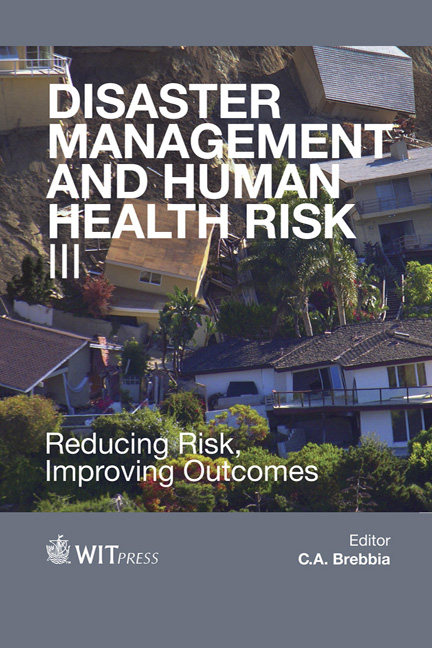Relationship Of Debris Flows Owing To Climate Change: Korea’s Case
Price
Free (open access)
Transaction
Volume
133
Pages
10
Page Range
57 - 66
Published
2013
Size
1,036 kb
Paper DOI
10.2495/DMAN130061
Copyright
WIT Press
Author(s)
A. Cha & T. H. Kim
Abstract
The climate change drastically modifies the earth’s environment and the landscape is easy to be altered by this global phenomenon. Transforming landscapes which lose their own stability usually results in forms of the ground movements such as landslides. Identifying landslide prone areas, mapping landslides, and evaluating expected risks to people, property, environment, and other resources are, therefore, important issues which are closely related to land use, engineering design work, and emergency planning in order to reduce the impacts by landslides. In this study, we examined the possibilities of identifying unstable areas where landslides would occur. These are based on the statistical evaluation of orientation data representing geomorphological characteristics of the ground surface. Practical applications to recent landslides which occurred in Korea showed the technology we proposed is well delineated the potential susceptibility of landslides before tragic events happened. Keywords: climate change, precipitation, landslide, debris flow.
Keywords
climate change, precipitation, landslide, debris flow




